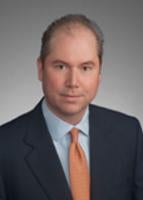In a unanimous decision, the US Supreme Court held that pure omissions are not actionable under Rule 10b-5(b) under the Securities Exchange Act of 1934.[1] Rather, the Court found that Rule 10b–5(b) prohibits half-truths, not pure omissions, because the rule requires identifying affirmative assertions (i.e., “statements made”) before determining if other facts are needed to make those statements not misleading.
The decision resolves a circuit split concerning the circumstances in which shareholders can bring private suits under Rule 10b-5(b) for a company’s failure to make required disclosures in the management’s discussion and analysis, or MD&A, section of its periodic reports filed with the SEC.
Background
Rule 10b-5(b) makes it unlawful to make an untrue statement of a material fact or to omit to state a material fact necessary in order to make the statements made, in the light of the circumstances under which they were made, not misleading. Item 303 of Regulation S-K requires companies to “[d]escribe any known trends or uncertainties that have had or that are reasonably likely to have a material favorable or unfavorable impact on net sales or revenues or income from continuing operations.”
The Court stated that Rule 10b-5(b) accomplishes two things:
- First, “it prohibits ‘any untrue statement of a material fact’ — i.e., false statements or lies.”
- Second, it “prohibits omitting a material fact necessary ‘to make the statements made . . . not misleading’.”
The question before the Court was whether the second prohibition bars only half-truths or instead extends to pure omissions.
The Decision
Pure omissions occur when a “speaker says nothing, in circumstances that do not give any particular meaning to that silence . . . Half-truths, on the other hand, are ‘representations that state the truth only so far as it goes, while omitting critical qualifying information.’”
The Court stated that “logically and by its plain text,” Rule 10b-5(b) “requires identifying affirmative assertions (i.e., ‘statements made’),” and does not itself “create an affirmative duty to disclose any and all material information.” Accordingly, the Court found that Rule 10b-5(b) covers half-truths, but not pure omissions.
Takeaways
Private parties may continue to bring claims based on Item 303 omissions that create misleading half-truths. Additionally, the SEC has the authority to investigate and prosecute violations of its own rules, including omissions of required disclosures under Item 303. As such, public companies should continue to ensure that they comply with the letter of Item 303, as well as the SEC’s adopting release for 2020 amendments to Item 303, by describing the company’s business in a manner that enables investors to see the company “through the eyes of management.”
The Court did not opine on whether a statement had been made in the case at issue and did not decide what would constitute a “statement made.” The Court also did not clarify when an omission would make a statement made misleading. The Supreme Court remanded the case for further proceedings in conformity with its holding. The full opinion can be found here.
[1] Macquarie Infrastructure Corp. v. Moab Partners, L. P., No. 22-1165, 2024 WL 1588706 (U.S. Apr. 12, 2024).





 />i
/>i

